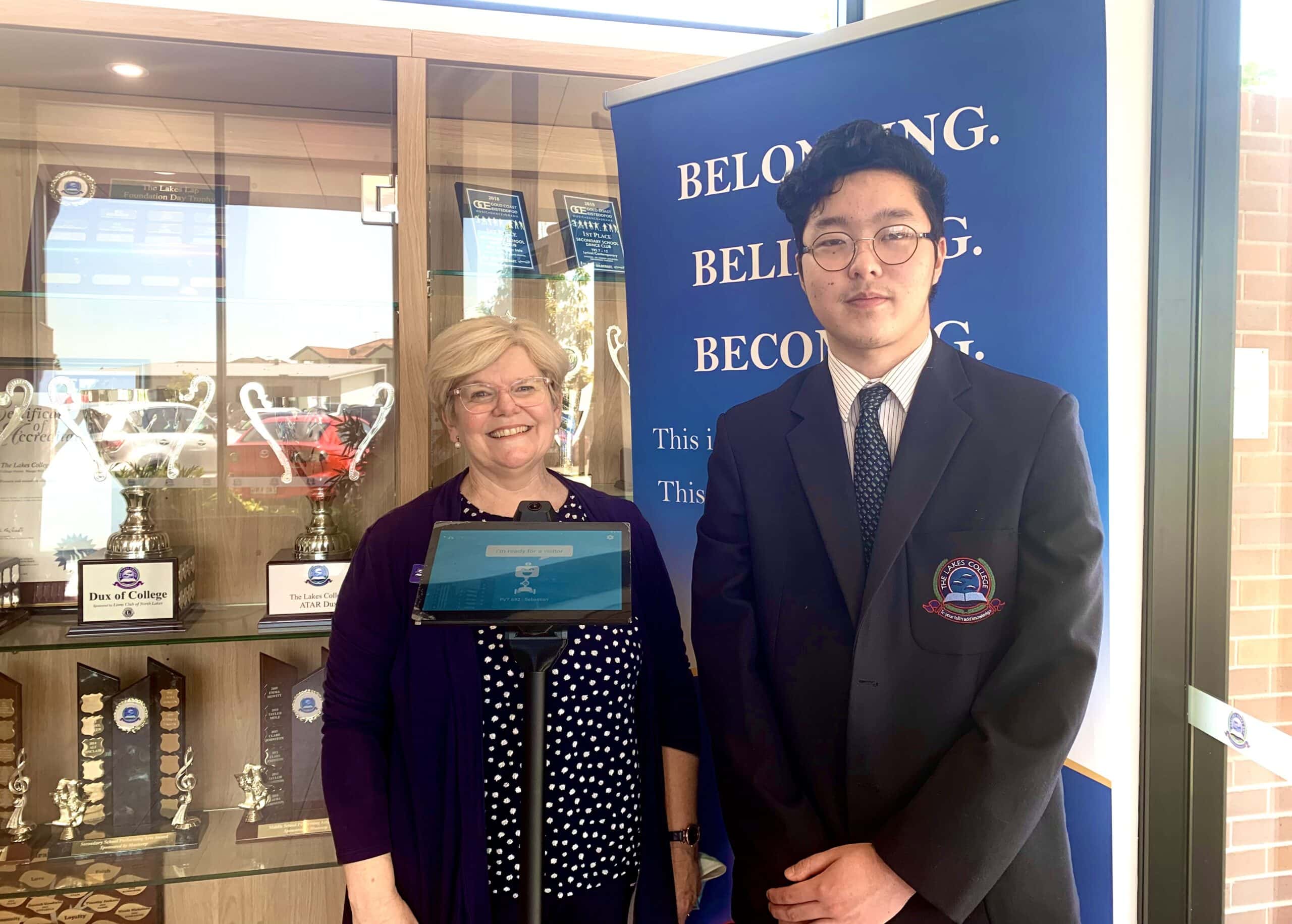This article was first published on Education Matters. To view the original article click here.
In schools across Australia, up to 1.2 million children face health challenges serious enough to affect their education and attendance. According to MissingSchool CEO and co-founder, Ms Megan Gilmour, more than 100,000 students are already missing significant school time in the face of rising medical and mental illness, with the trend of school refusal underlining urgency.
Building on the success of Australia’s first school telepresence robot service, the non-profit has commenced rollout of a suite of digital services after completion of a one-year pilot made possible through a Commonwealth grant and seed funding from TPG Telecom Foundation.
Named Seen&Heard, the groundbreaking initiative is driving adoption of ‘teach once’ telepresence technology (including robots) in schools and offering real-time assistance to students and their families, training teachers, fostering peer support, and producing world-leading research.
Released in April, the animations will be shared in primary and secondary schools across Australia to acknowledge the role of siblings and peers of students impacted by complex health challenges in keeping positive connections, and to minimise stigma.
View primary and secondary school versions of the peer animations
Ongoing rollout of MissingSchool’s Seen&Heard initiative also includes:
- the Australia-first National Insights for Education Directories, activating a powerful alliance at the intersection of health and education;
- on-demand teacher training within a digital professional learning community;
- real-time assistance to students and families via MissingSchool’s digital Helpline, Parent Facebook Group, including weekly online support sessions; and
- world-leading research.
Since 2018, MissingSchool has helped an estimated 6,480 classmates reconnect through deployment of over 216 telepresence robots across Australia and trained 648 teachers in their use, with a further 2,160 teachers observing.
Ethan Waller, now 21, is one of the students helped by MissingSchool. He’s lived with the debilitating neuro-immune condition, myalgic encephalomyelitis/chronic fatigue syndrome (ME/CFS), for nine years.
MissingSchool helped Ethan Waller, now 21, complete Year 11 and 12. Image: MissingSchool
As a result, he completed Years 11 and 12 over four years (between 2018 and 2021) through telepresence support.
Prior to the onset of ME/CFS, Ethan dreamed of becoming a concert pianist. While this is no longer possible, as he is unable to sit up for long periods due to the condition, ongoing connection to learning enabled him to graduate high school and, in 2022, commence a degree in Music Tech at Queensland Conservatorium (Griffith University).
Read more about Ethan’s story and how he used his skills to compose the soundtrack to MissingSchool’s peer animations.
Megan Gilmour co-founded MissingSchool in 2012 after watching her son struggle with a two-year period of school isolation due to a life-threatening illness, requiring a bone marrow transplant at the age of 10. Since then, she has led the not-for-profit, advocating for the needs of students with complex medical and mental health conditions, their families, teachers and peers through awareness; resources; capacity building; activating human-centred telepresence technology; and world-leading research.
In 2018, she was a finalist for the ACT Australian of the Year Awards. She has also been recognised as one of AFR’s 100 Women of Influence, and was awarded the Telstra ACT Business Woman of the Year for Purpose and Social Enterprise in 2019. She is also a Churchill Policy Fellow, a Deakin University Honorary Fellow and 2020 Alumna of Year.
For more information, visit: www.missingschool.org.au
